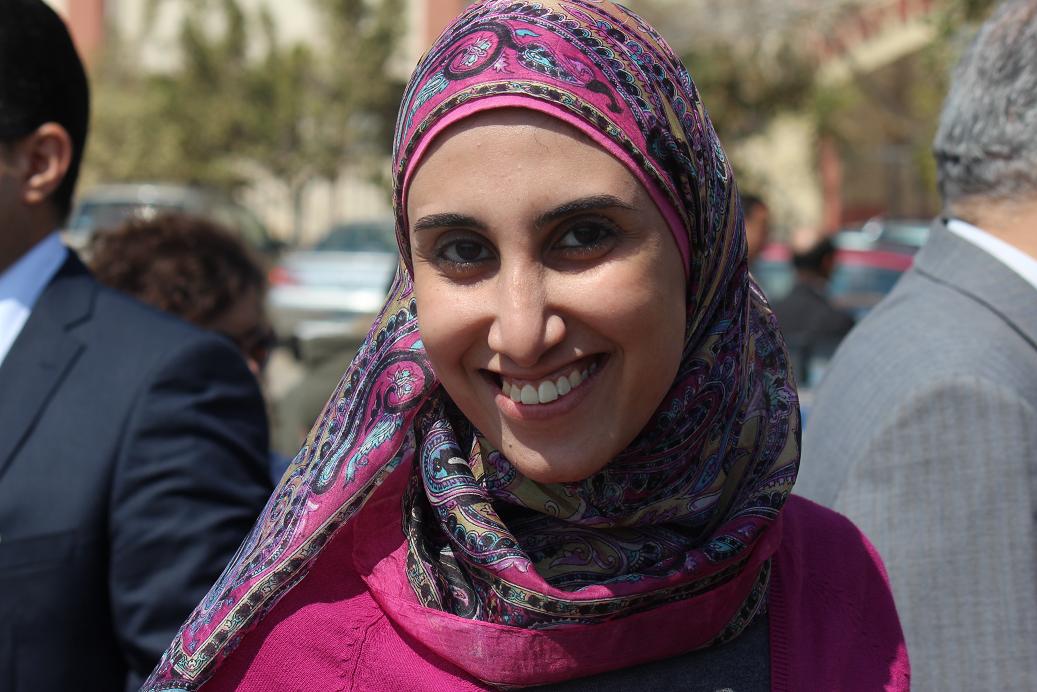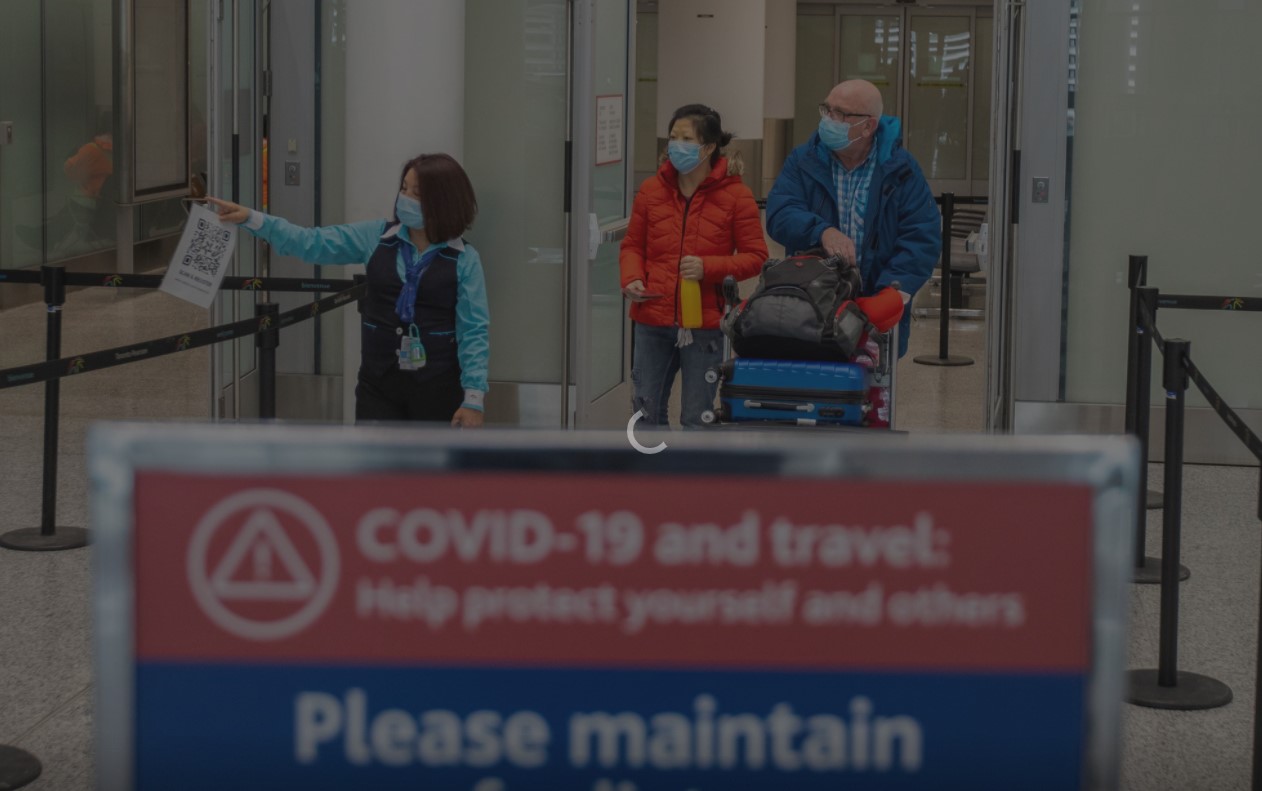
Egyptian NGO workers appeared in court on 8 March. New judges have been appointed to hear the trial of 43 defendants accused of receiving illicit foreign funds to operate unregistered organizations in Egypt. The NGO workers were let into the defendants' cage for the second hearing alongside people accused of thuggery and killing, according to one of the defendants.
Most of the foreign defendants in the case left the country after the travel ban on them was suspiciously lifted, raising questions about the independence of the judiciary. They left the Egyptian defendants to face the controversy the case has created.
At their first court appearance on 26 February, the 14 Egyptian defendants were in good spirits behind iron bars, socializing and getting to know each other, many of them meeting for the first time in the cramped, smoke-filled courtroom.
The cage was small, with narrow benches. Scribblings by past defendants covered its walls. One note defendant Rawda Ali said inspired her stated, “If defending righteousness is a crime, then long live the world of crime.”
Lawyer Negad al-Borai said the Egyptians could face up to five years in prison, while other lawyers have maintained that the charges are weak and that the alleged illicit funds going into their private bank accounts are nothing more than their salaries.
Egypt Independent took a moment to meet three of the Egyptian defendants to get to know the faces behind the case that has gripped the diplomatic sphere. Across different social classes and backgrounds, the defendants said they worked at the NGOs either for the broader improvement of society or simply for the improvement of their own lives.
Hafsa Halawa, 25
One year ago, Hafsa Halawa was staying up nights and days to keep up with the constant developments of the Egyptian revolution — from a distance. Halawa was completing a masters in law in London. It broke her heart that she was not on the streets of Cairo with her friends and family, and missed the 18 days of protests that overthrew Hosni Mubarak.
“You wanted to experience the 18 days? Well, consider this your version of the 18 days,” joked her friend and National Democratic Institute colleague Rawda Ali about the legal predicament they have both found themselves facing.
Halawa was born and raised in England to an Iraqi mother and an Egyptian father who both moved to London after suffering injustice in their own countries. Her father left Egypt because of the corruption that hindered his career as an orthopedic surgeon, while her mother’s family was forced into political exile during Saddam Hussein’s reign.
Five years earlier Halawa made the decision to leave the suburbs of Plymouth to move to her home country, Egypt. Against her father’s wishes, she knew this was where she “belonged.” Halawa started her career in corporate law, working at reputable companies such as Orascom Construction Industries and Lafarge Building Materials Holding, before going back to the University of London to get her LLM degree in corporate and commercial law. It was then that a revolution erupted in Egypt.
Halawa’s tenacious interest in politics and development in post-Mubarak Egypt made it hard for her to go back to her corporate roots. Instead, she decided to join the National Democratic Institute in July 2011 as a program assistant, where she would work with newly active political parties to develop strategic platforms and campaigns.
Halawa later became a long-term observer for Upper Egypt in the parliamentary elections. She fondly recalls working in Upper Egypt and getting to know interesting Egyptians from diverse backgrounds.
She said she knew her position at a foreign NGO working on political activities could entail stigma.
“We knew the stigma attached, but at the end of the day, the only way to succeed in this revolution is to work on awareness and education,” she said. “Why shy away from the problems attached when you can use your experience to teach those who attach the stigma to understand your activities and purpose?”
Halawa said that despite the media and the “propaganda war” against the NGO, she and her colleagues were well-received on the ground and “have success stories across the country that proved to us our purpose and activity was important.”
“It’s not about being famous and popular on TV, etc., we’re a grassroots organization, and our work has always been about the people on the ground and their own initiatives. In that sense, we are successful and have great support all over Egypt,” Halawa said.
Rawda Ali, 28
The first thing Rawda Ali looked for when back at the NDI office after the military raid in December was her pink flip-flops. They had been misplaced and she was relieved to find they hadn’t been confiscated along with her personal laptops. She wore those flip-flops every time she went to perform ablutions before prayer instead of walking barefoot in the office — a small but telling sign of her neat, structured way of life.
Ali had decided to devote her professional life to development.
“I love working in projects that directly affect people’s lives, and seeing the direct result of them in front of me,” Ali explained passionately. “I feel empowered by empowering people.”
Ali worked on development projects during the difficult times prior to the revolution, when pressure from the State Security apparatus was abundant. She recalls being questioned by state security officers who did not quite understand the work of NGOs.
Things haven’t changed much — in fact, obstacles have increased, she admitted. However, this never stopped her from working.
Last year was a tough, exhausting one for Ali, whose work included community organizing and offering how-to training programs for political campaigns. She enjoyed working with parties across the political spectrum: leftists, liberals, the mainstream Islamists of the Muslim Brotherhood and the ultraconservatives of the Salafi movement.
She never expected to find herself standing behind bars because of it.
“I have mixed feelings. I never ever thought that I would wake up one day to attend my own trial over charges of receiving foreign funds or spying,” she said incredulously. “But somehow, I am very optimistic.”
Despite the difficulties she has been through, she never once thought of fleeing the country, explaining, “If all the good people leave the country, who will we leave the country to?”
“Even though it broke my heart when an elected MP in the Parliament of the revolution, who is supposed to be representing us, Egyptians, said that he wants us [the accused employees] executed,” she added sadly. “We were judged even before any investigations.”
No matter how difficult and disheartening this phase has been for Ali, her devotion to Egypt's development remains strong. She and a couple of friends started an initiative in Nasr City a month ago, aiming to study all the problems and needs of the area and draft project plans for each problem, then distribute the projects among NGOs according to their specializations. The idea helps NGOs work on pressing problems while decreasing duplication, she explained.
Islam Shafiq, 27
Sitting in his family’s cozy apartment in the middle-class district of Shubra, Islam Shafiq appeared to be the average young Egyptian man. A day earlier he was standing behind bars with an apprehensive father looking at him and asking worriedly, “Will my son go home after this?”
As an only child, Shafiq’s parents are evidently the most important thing to him. He admitted feeling like a scapegoat caught up in a political case.
“I wouldn’t mind it if I was in this alone,” he said. “But this doesn’t just hurt me, it hurts my family. There is no one else who can look after them but me.”
That was part of the reason he joined the International Center for Journalists, one of the NGOs accused in the case, in November 2011: His previous job at a tourism company was based in Taba, South Sinai, away from his parents in Cairo.
After graduating from the Faculty of Tourism, Shafiq started out as a hotel receptionist. His career had him bouncing to better positions in a number of hotels. But when post-uprising instability devastated Egypt’s tourism sector, he had little to do at a hotel that was losing a lot of money. He left.
An old family friend, Yehia Ghanem, also facing charges in the case, suggested the job at the International Center for Journalists, and Shafiq eventually became the financial and administrative manager at the center’s Cairo office.
Shafiq said his organization worked with journalists, not in politics, so he never expected this to happen. He said he trusted that Ghanem would not have involved him in anything suspicious.
He now regrets leaving his career in tourism and plans to go back to it, adding that from now on he will consult a lawyer before accepting a new job.
Shafiq passionately remembers the days before the court decision. Engaged at the time, he was juggling work and a fiancée, while maintaining regular social outings, going to the movies, listening to his favorite singer Mohamed Mounir, and playing Playstation with friends. It was the typical life of a 20-something man.
He shied away from political events and hardly ever joined protests.
“My first time in Tahrir Square was only a couple of months ago,” he admitted. “I mostly went to check it out, not to protest.” Islam has the opinion that “the revolution is over” and now is the time to work rather than protest.
Shafiq sat wearily awaiting his next court hearing. It has not really hit him yet, he said.
“I will remain in a state of apathy until the case is over,” he added. “The repercussions of this will really hit me after it is all over.”




